Terrence Rogers, also known as TJ SupaHype, is a seasoned music industry veteran with over 30 years of impactful contributions to the Phoenix, Arizona community and beyond. His illustrious career has seen him operate within major industry hubs, starting at Jive Records in New York and later expanding his expertise to renowned recording facilities such as the Hit Factory NY, (Herb) Powers House of Sound, and (C&C) Music Factory Mix Studios.
TJ SupaHype’s resume boasts an impressive array of accomplishments, including the release of multiple projects under his label and artist services company, Supa Music. His keen eye for talent has not only nurtured emerging artists but has also led to supervising music for film projects, showcasing his versatility and creative vision.
One of TJ SupaHype’s most notable achievements is the creation of the globally renowned digital radio show, Radio Supa. This weekly show serves as a platform for introducing new music to audiences while engaging in insightful interviews with both celebrity and independent artists. Broadcasting for an impressive 15 years, Radio Supa has garnered a loyal following and is syndicated on over 100 radio platforms, including FM, iHeart, and Digital, solidifying its influence in the urban music market.
In addition to his radio endeavors, TJ SupaHype continues to push boundaries in the digital realm with his web television show, the Rock the Mic music video show. This innovative platform allows for visual storytelling and further cements TJ’s commitment to showcasing diverse talent and promoting artistic expression.
Beyond his professional accomplishments, TJ SupaHype’s impact extends to the Phoenix, Arizona community, where he has become a respected figure known for his dedication to supporting local talent and fostering a vibrant music scene. Through his entrepreneurial spirit and unwavering passion for music, Terrence Rogers, aka TJ SupaHype, stands as a true trailblazer whose legacy continues to inspire and uplift both aspiring artists and music enthusiasts alike.
In this interview, we delve into the inner workings of TJ’s mind in relation to the creative aspects of music, his powerful platform, and how he continues to push boundaries and exude excellence in the Phoenix area and beyond.
Can you explain your vision for Radio Supa and has your vision changed over the years?
My vision when beginning the station started with wanting to create a platform that would give an opportunity to not only promote my own creative projects, but also to provide a platform that others could use to promote their projects and businesses.
To add a little backstory, 15 years ago, I had just distributed an album project and the only radio support in the region I was in was FM. The FM radio platforms in the area were non supportive to independent projects for anything that was sufficient for actually marketing a project. They may play a song a few times over the course of 4 weeks but that was about it. We sought to create a formal platform to remedy this.
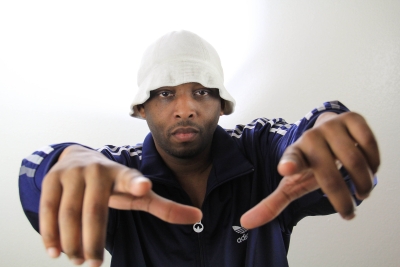
What strategies and innovative approaches did you use to make your show stand out from the competition?
First, we took a nationwide and worldwide approach in terms of pushing our platform, rather than just a local one. I previously worked in the major music industry of New York, so when I created RS, I did so with the idea that I wanted it to operate and give the feeling of the major industry I came from. Also, we utilized twitter a lot and sought to do personal interaction with the artists whose music was being played, to let them know when we were spinning their music. It doesn’t sound as prominent today as the world operates off of social media, but 15 years ago, many of the platforms that people use today (Instagram, IG, Apple Music, Spotify) did not exist and we were at the “beginning” of the social media world we are in today.
Could you share some examples of the impact Radio Supa had on the community and the artists it showcased?
Yes, so many, I will name a few. We currently air our flagship show, The Radio Supa Show (Live from The Fortress) on over 100 different radio stations across the world, We have interviewed a host of celebrity guests, Flavor Flav, MC Lyte, Cassidy, MC Eiht, Dana Dane, Yo Yo, just to name a few. In 2016 we peaked at the #2 digital (internet based) hip hop station in the nation on the Live 365 platform out of 550 other stations. We have been in operation for over 15 years and we have had over 38k listeners tune in on a single day.
How did you navigate the challenges or obstacles you faced while building Radio Supa, and what lessons did you learn from those experiences?
When I started Radio Supa, I said to myself, I would run the station for at least 3 years, no matter what happened. I felt like you have to take that “Starting college for your BA approach” with it. Like you know your life is gonna be hectic for the next few years so no matter what happens you just have to ride with it. It was a difficult time in my life to say the least lol. I had just recently divorced, I was a single working father, in school for my bachelor’s degree, working full time, trying to buy a house to live in and still handling artist and music projects. Just imagine that all the obstacles that could have come with those living conditions likely occurred, but my focus was on making sure the station had an opportunity to be successful regardless of the issues I faced.
In what ways do you believe Radio Supa has contributed to the growth and recognition of local artists in Phoenix?
In Phoenix, we were the first organized independent digital platform to operate here. There was one digital radio platform operating when we started, but we were the first to offer multiple shows on a station, we paid royalties to licensing companies and did live onsite broadcasting and interviews on location and local events. We created an infrastructure that did not exist here at the time and by doing that, we began to create a blueprint for the platforms that would be created later to follow. From a nationwide standpoint, from inception, we worked to include artists and creatives from across the world, not just locally. We played music and took interviews from all over the world.
In building a personal brand, what is your perspective on the importance of authenticity, consistency, and connecting with the audience?
This is extremely significant. Your brand and the diligence you put into building it will be the ship that you use to carry yourself throughout your career in this industry. So if you take shortcuts or operate in a dishonest or underhanded way, you may see an immediate gain, but in the long run it can definitely stifle or end your career. I have always tried to operate like I am living with a camera watching me in all of our dealings. I believe that because of this (and God’s blessing) we have been able to uphold a very clean reputation throughout the years.
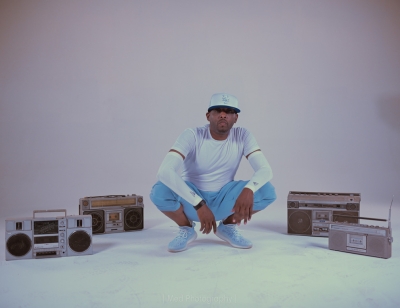
Can you share examples of how you have successfully demonstrated authenticity in your personal brand and connected with your audience?
Yes, we carry honesty in all our dealings. I keep my word in any agreements we make, in paper or in handshake, always deliver what we promise and always work with the idea that we are looking to positively affect whatever project or career we are working on. I always tell people that if I work with them in any long-term sense, they should be able to see a difference in where they were when they started working with me and where they are presently. In the work i do with others (staff or talent) I always look for ways I can help them move forward in their career, even if they are here to assist me. If I can’t move someone’s career (rare), I will tell them upfront and not take the project. Even payment.
Could you provide specific examples of marketing and promotion techniques that you believe have contributed to your success in the industry?
The greatest one that comes to mind is looking at things from a worldwide perspective. There are so many people in the world to reach. People in places you haven’t been that have an interest in what you create. work to find those people as they can become your new fans. Think outside the box for this, don’t just use the same techniques that you see everyone around you using.
Can you share a personal anecdote from your time on the radio that has had a significant impact on your career or life?
I look at my mission on Earth being tied to the work I do on the radio. I’ve operated in the music industry as an artist, manager, advisor and under so many other functions but God has always shown me that my greatest success always came from projects that involve helping or pushing others. I ask others the question “If you had a superpower, what would it be”? Answering that question for myself, (I can fly and shoot lasers out of my hands and stuff lol) I would say that one of my greatest powers is that; I make other people who have powers, more powerful when I am working with them or around them. It goes back to being at my greatest potential when helping others.
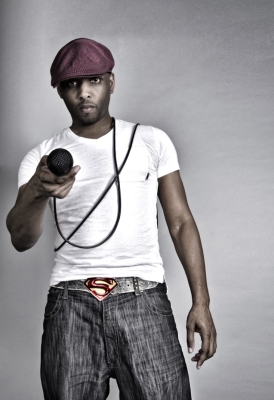
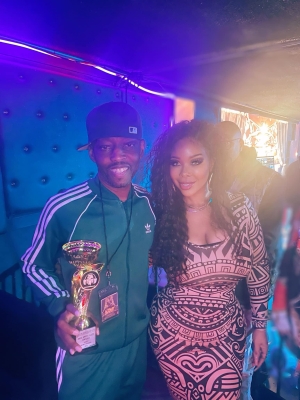
Looking back on your career, what were some of the highs and lows you experienced, and how did they shape you as a professional?
I was very fortunate to work in the major NY music industry. Jive Records, The Hit Factory, Powers House of Sound, C&C Music Factory. Working in these places pushed me to think extremely fast and hold a high sense of attentiveness in ensuring work was done well and efficiently. It would raise my standards of how I operate way above most of what I run into. I carry these skills throughout my live and implement them in how I operate my own platforms. The trials that came in life working in these scenarios also taught me how to navigate through the difficult and challenging experiences I might face doing this.
Share a memorable experience that stands out to you and explain why it was so memorable.
Whoa… let me think of one I can talk about lol. In 2001 I was manager of a studio for C&C Music Factory. I had interns working an overnight shift. I lived in Queens and the studio was in the city. I got a call early from them stating that the session (Pras from the Fugees) was still there working and that they would have to leave to go to school soon. I got up and went into the city. I called the studio from Penn Station to let my interns know that I would be there soon. I remember looking at the clock and it was 8:47am. They answered at the studio and let me know that the session left and that they were leaving too. At this point I did not need to be in the studio until 11 so I decided to kill some time. I went to Macy’s across the street to browse for a while. When I came out, I remember hearing a lot of sirens, but being from NY, you never really pay attention to them. I started moving down 5th ave towards the studio on 13th street and noticed that many of the individuals were behaving out of character, like standing in one spot on corners so that I had to walk in the street around them to get to the other side of the intersection. I stopped and asked an individual what was going on. He said that “A plane crashed into the Empire State Building”. The ESB was on my right so I looked up at it and it was fine. Then I looked forward towards the World Trade Center and saw that they were on fire. The day was 9/11. To fast forward, I remember having to walk towards the studio and all the people covered in soot as they were all walking away from it. I felt like God brought me to Manhattan early to be able to witness the event.
Being a public figure comes with unique challenges. How have you managed to maintain a balance between your personal and professional life?
To be successful in the entertainment industry, I say that you have to build your life around the idea that you want to work in it. It can’t be something that you do in your spare time, you have to find a job or funding to live, eat and have a place to stay. You have to take care of your family, children and also be able to self-fund some of your creative ideas or marketing. I designed the platforms I create to operate in a way that they can sustain operation even in the most difficult times I face in life.
What are some valuable lessons you have learned along the way in terms of maintaining personal and professional balance as a public figure?
I’m gonna go back to the camera statement, if you are going to go into the entertainment field today, understand that you will be under scrutiny. Prepare your life for it. The attention you get will not always be good attention so you will need to make decisions that will be the best ones for your career. I personally have merged my personal and business life so I kind of operate as an open book. A very interesting one, but an open book.
Any closing thoughts you’d like to share?
I would like to thank my radio team Lisa, Kim, Professor X, DJ Dn3, Brianna & Sunny. Follow me at @tjsupa or @RadioSupa
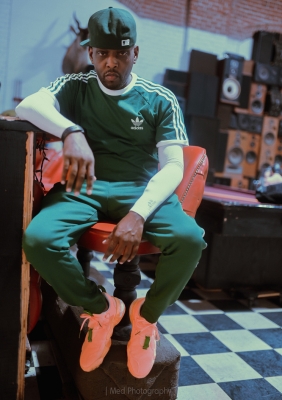
Photo Credits: Chas “Medaforacle” Wright

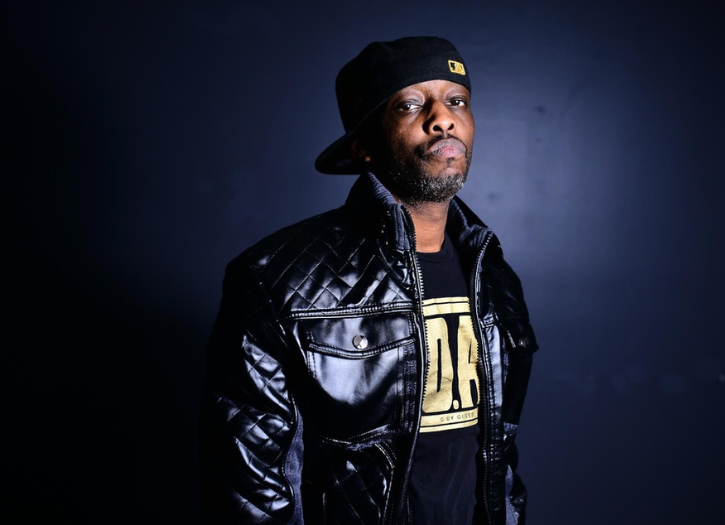
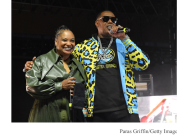

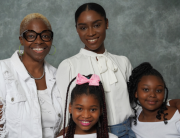
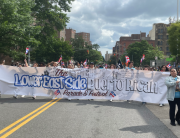
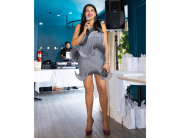
I want you to know how proud I am of all your accomplishments you have done in your 15 years. Being a single parent, going to school, working your every day job, getting through your health issues, and running your successful radio show. I am so proud to call you my superman, even though krypton is his weakness, you fight though it, never give up that fight, God put you here for a reason, and never forget, I got your back. 😘💖
Thank you for everything Mom, in all support and in every way. Im happy that you are able to see the fruit of what you ultimately produced. Love TJ
I like when you said “ God has always shown me that my greatest success always came from projects that involve helping or pushing others.” That is a powerful gift of selflessnes, you truly pour into other ppl! And that is such a blessing! Congratulations on all your endeavors!